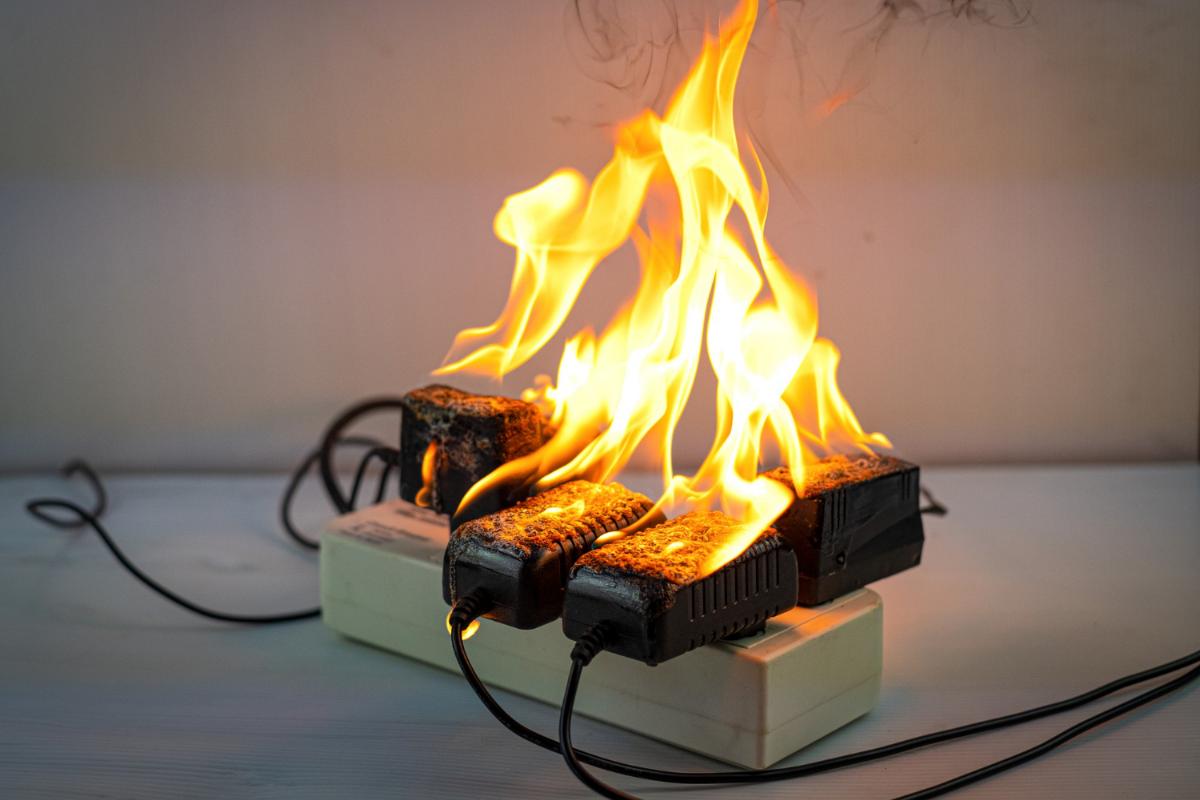How to Prevent Electrical Fires in Your Home


Electrical fires are one of the leading causes of home fires, and they can cause significant damage to your property, as well as put your family’s safety at risk. However, by taking some simple precautions and being aware of potential hazards, you can reduce the risk of an electrical fire in your home. This article will guide you through the best ways to prevent electrical fires and keep your home safe.
1. Regularly Inspect Your Electrical Wiring
One of the most important steps in preventing electrical fires is to regularly inspect the electrical wiring in your home. Over time, wires can become worn out, frayed, or damaged, which increases the risk of a short circuit or electrical fire. Make sure that all wiring is in good condition, and look for signs of wear such as exposed wires, scorch marks, or any other damage.
If you notice any of these issues, it’s essential to call a licensed electrician to replace or repair the damaged wiring. Do not attempt to fix electrical wiring yourself unless you are a trained professional. Always trust an expert to ensure the safety of your home.
2. Avoid Overloading Electrical Outlets
Overloading electrical outlets is one of the most common causes of electrical fires. When you plug too many devices into a single outlet, it can cause the outlet to overheat and spark, leading to a fire. To prevent this, avoid using extension cords for long periods and ensure that you do not plug multiple high-wattage devices into the same outlet.
If you need to use several devices in one area, consider installing additional outlets or using a power strip with a built-in circuit breaker. This will help distribute the electrical load evenly and reduce the risk of overheating.
3. Use Electrical Appliances Safely
Electrical appliances, if not used properly, can also cause fires. Always follow the manufacturer’s instructions for each appliance and make sure to turn them off when not in use. Never leave appliances such as toasters, stoves, or irons unattended, especially when they are plugged in.
In addition, keep all electrical appliances away from water sources, such as sinks and bathtubs, as water can increase the risk of electrical shock and fire. Make sure that all appliances are plugged into properly grounded outlets to avoid potential hazards.
4. Maintain Your Home’s Circuit Breaker
A circuit breaker is an essential part of your home’s electrical system. It is designed to automatically shut off the power to a circuit if it becomes overloaded, helping to prevent electrical fires. To ensure that your circuit breaker is functioning correctly, have it inspected by a professional at least once a year.
If you notice that a circuit breaker trips frequently, it could be a sign of a more serious problem, such as an overloaded circuit or faulty wiring. In such cases, you should contact an electrician immediately to avoid the risk of fire.
5. Install Smoke Alarms and Fire Extinguishers
While preventing electrical fires is essential, it’s also important to be prepared in case one occurs. Installing smoke alarms in every room of your home is a simple and effective way to protect your family. Smoke alarms can alert you early if a fire starts, giving you time to escape and call for help.
Additionally, keep a fire extinguisher in your home, especially in areas where electrical equipment is commonly used, such as the kitchen and garage. Make sure everyone in your household knows how to use a fire extinguisher and has access to one in case of an emergency.
6. Replace Damaged Cords and Plugs
Damaged cords and plugs can easily cause electrical fires. If you notice that a cord is frayed, cut, or showing signs of wear, replace it immediately. Do not attempt to tape or repair damaged cords, as this will not eliminate the risk of a fire.
Additionally, check the plugs of your appliances to ensure they are not loose or worn. Loose plugs can overheat and spark, leading to a fire. If you find any issues with plugs or cords, it’s important to replace them as soon as possible to maintain safety in your home.
7. Keep Combustible Materials Away from Electrical Sources
Combustible materials, such as paper, fabric, or wood, should never be placed near electrical outlets, wires, or appliances. These materials can easily catch fire if they come into contact with an electrical spark or heat source. Always keep flammable items away from areas where electrical devices are in use.
For example, don’t store newspapers, magazines, or other flammable items near space heaters, light fixtures, or electrical outlets. It’s a good practice to keep electrical appliances in clean, uncluttered areas to reduce the risk of fire.
8. Upgrade to Modern Electrical Systems
If you live in an older home, it may be time to upgrade your electrical system. Older wiring systems may not be equipped to handle the demands of modern appliances, which can increase the risk of overheating and fires. If your home’s electrical system is outdated or if you’re unsure about its safety, consider having it inspected and upgraded by a licensed electrician.
Upgrading your electrical panel, replacing old wiring, and installing modern outlets and switches can improve the safety of your home and prevent electrical fires. Modern systems are designed to handle the higher electrical load of today’s appliances and electronics.
9. Use Electrical Appliances in Dry Conditions
Water and electricity do not mix. Wet conditions can lead to short circuits and increase the likelihood of an electrical fire. Always use electrical appliances in dry conditions and make sure your hands are dry before plugging or unplugging devices.
In bathrooms and kitchens, be especially cautious. Avoid using electrical appliances near sinks or bathtubs where water can come into contact with the device. Additionally, ensure that all outlets in these areas are equipped with Ground Fault Circuit Interrupters (GFCIs), which are designed to prevent electrical shock.
10. Teach Your Family About Electrical Safety
Finally, it’s essential to educate your family members, especially children, about electrical safety. Make sure they understand the importance of not playing with electrical outlets, plugs, or cords. Teach them how to safely use electrical appliances and encourage them to report any damaged or faulty wiring.
Having an open conversation about electrical safety can help prevent accidents and ensure that everyone in your household knows what to do in case of an electrical emergency.
11. Trust Manikaran Enterprises for Reliable Electrical Solutions
For those seeking expert help in maintaining a safe and efficient electrical system in their homes or businesses, look no further than Manikaran Enterprises. As a Top Electrical Solutions Company in Rajasthan, India, we specialize in providing high-quality electrical services, from inspections and repairs to full system upgrades. Our team of licensed electricians is dedicated to ensuring the safety of your home and the reliability of your electrical systems. Whether you need a quick repair or a comprehensive safety check, Manikaran Enterprises is your trusted partner for all your electrical needs.
Conclusion
Electrical fires are a serious risk, but by following these simple safety tips, you can reduce the chances of one occurring in your home. Regularly inspect your electrical system, avoid overloading outlets, use appliances safely, and keep combustible materials away from electrical sources. Additionally, maintain your circuit breaker, replace damaged cords, and upgrade your home’s electrical system if necessary. By being proactive about electrical safety, you can protect your home and family from the dangers of electrical fires.






